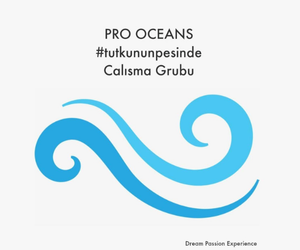Just because you can’t get to the ocean or a dive site doesn’t mean you have to give up on scuba practice for the day. There are plenty of things you can do to sharpen your techniques and knowledge without leaving the house. Read on for a guide to practicing scuba skills from home.
Improve Your Breath Work
Proper breathing techniques help you stay safe and longer under the water. At home, you can practice diaphragmatic breathing by lying flat on your back and placing one hand on your chest, another on your stomach. Focus on making the lower hand rise while keeping the upper hand still. This technique helps you develop the slow, controlled breathing patterns essential for efficient air consumption underwater.
Set aside 10–15 minutes daily for breathing exercises. Practice extending your exhales longer than your inhales, which mirrors the optimal, relaxed breathing rhythm for dives. You can also practice breath-holding exercises to build comfort with controlled breathing, though always do this safely and never to the point of discomfort.
Practice Configuring Your Equipment
Familiarize yourself with your gear by assembling and disassembling it regularly. Practice setting up your BCD, regulator, and tank connections until you can do it smoothly without thinking. This muscle memory proves invaluable when you’re suited up and ready to dive.
Strengthen Your Swimming Muscles
The stronger you are, the easier and safer diving becomes. All you technically need for this training is a proper surface and your body weight, though some dumbbells are very helpful. Focus on exercises that build core strength, leg power, and cardiovascular endurance.
Of course, swimming is the best exercise for divers. If you don’t have a pool at home, you can either go through the process of installing a custom pool or make short trips to your local rec center.
If pool access isn’t possible at all, try flutter kicks while lying on your stomach, or practice treading water motions while sitting in a chair. Planks, squats, and lunges also build the muscle groups you’ll use most while diving.
Learn More Fish Species
Part of the wonder of diving is expanding your knowledge of the underwater world in real time. But it can be disappointing to have a creature swim past your face and not know anything about it.
Prepare for more exciting dives by expanding your marine life knowledge. Study fish identification guides and underwater photography books. Create flashcards with common species you might encounter on your next dive trip. Understanding marine ecosystems enhances your diving experience and makes you a more observant underwater explorer.
Brush Up on PADI Rules
Do you have a PADI manual lying around the house? That’s the bread and butter of scuba safety, so don’t let your knowledge of its contents fade away. Try habitually doing the following:
- Review your certification materials regularly to keep safety protocols fresh in your mind.
- Study dive tables, even if you typically use dive computers.
- Quiz yourself on hand signals, emergency procedures, and dive planning principles.
- Consider taking online specialty courses or refresher programs.
Ultimately, the best divers never stop learning and practicing, whether they’re 100 feet underwater or sitting in their living rooms. By practicing your scuba skills from home, you can guarantee better, safer, more productive dives when you finally make it out to sea.
THE SCUBA NEWS Link !
DemirHindiSG 03 Ağustos 2025-19:43





